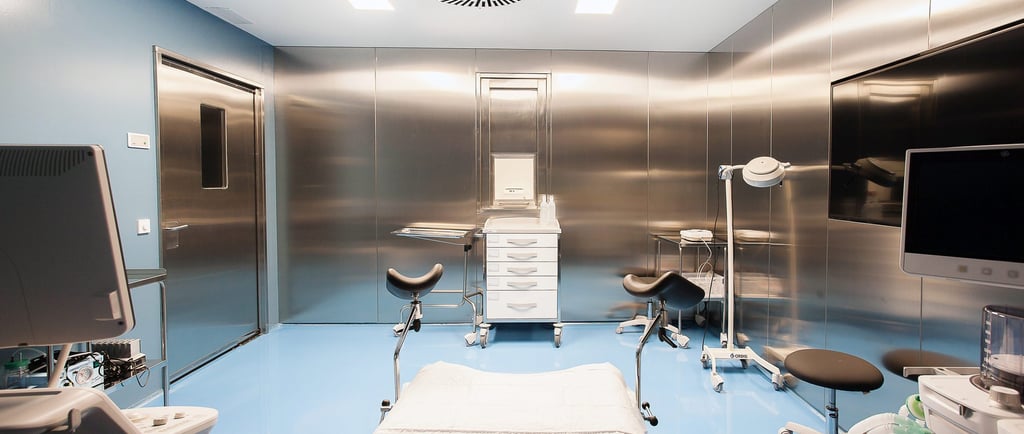Egg Collection IVF: What to Expect from Start to Finish [2025 Guide]
3 min read


If you’re preparing for IVF, egg collection (or egg retrieval) might feel like one of the most nerve-wracking parts of the journey. But knowing what to expect—and why it’s done—can help you feel more calm, confident, and in control.
At fertie, we believe that understanding each step of the IVF process empowers you to make informed decisions. Whether you’re getting ready for your first egg collection or just exploring IVF options, here’s a clear, supportive guide to help you navigate this important phase.
What Is Egg Collection in IVF?
Egg collection, also known as egg retrieval, is a minor surgical procedure during IVF. The goal is to collect mature eggs from your ovaries so they can be fertilized in the lab. This is where IVF truly begins: retrieving eggs that can potentially grow into embryos and, ultimately, a baby.
How to Prepare for Egg Collection
Preparation for egg collection starts weeks in advance. Here's how it works:
Ovarian Stimulation (10–14 days)
You’ll take daily hormone injections to stimulate your ovaries to produce multiple follicles (each potentially holding an egg). In a natural cycle, you typically release one egg; in IVF, the aim is to retrieve several.
Monitoring During Stimulation
Regular ultrasounds and blood tests check how your follicles are growing. Your clinic may adjust medication based on these results.
Trigger Shot (36 hours before retrieval)
When your follicles are ready, you’ll take a “trigger shot” (usually hCG or similar) to mature the eggs. This step is carefully timed to ensure the eggs are ready for retrieval.
What Happens During the Egg Collection Procedure?
Egg collection typically takes place 36 hours after your trigger shot.
On the Day
You’ll arrive at the clinic, and after a short prep, you’ll receive sedation or light anesthesia. Most people sleep through the procedure comfortably.
The Retrieval
Guided by ultrasound, your doctor inserts a thin needle through the vaginal wall into each follicle to gently aspirate (suction) the follicular fluid containing your eggs.
The procedure typically lasts 20–30 minutes.
Afterward
You’ll rest in recovery for about an hour before heading home. Plan for someone to accompany you, as you’ll still be feeling the effects of anesthesia.
Recovery After Egg Collection
Most people experience:
Mild cramping or bloating (similar to period cramps)
Fatigue from the anesthesia
Light spotting for a day or two
You can usually return to your regular routine within 24–48 hours, though your doctor may recommend avoiding heavy exercise or intercourse for a short period.
How Many Eggs Will Be Collected?
This varies from person to person, depending on:
Age
Ovarian reserve (AMH levels)
Response to stimulation medications
On average, clinics retrieve 8 to 15 eggs per cycle, but this number can be higher or lower. It’s important to remember that not every egg retrieved will fertilize or develop into an embryo, which is why retrieving multiple eggs helps improve success rates.
What Happens After Egg Collection?
Once your eggs are retrieved:
Embryologists assess which eggs are mature.
The mature eggs are fertilized with sperm (via IVF or ICSI).
Embryos are monitored over the next few days for development.
Depending on your treatment plan, you’ll either have a fresh embryo transfer within 3–5 days or freeze your embryos for future use.
Tips for Recovery and Emotional Support
Egg collection can be physically and emotionally intense. Here’s what helps:
Stay hydrated and eat light, nourishing meals.
Rest, but gentle walking can ease bloating.
Ask for support from a partner, friend, or your Fertie community.
Remind yourself: this is a major step toward building your family.
👉 Inside our Fertility 101 course, we walk you through every stage of IVF—from hormone injections and egg collection to embryo transfer and beyond. Get the guidance and support you need to feel informed and empowered every step of the way.
You don’t have to figure this alone
Inside fertie, you’ll get:
Expert-led courses to make informed decisions
Private support from women on the same path
Exclusive partner clinic perks & discounts
Disclaimer: Prices and treatment protocols vary by clinic and individual. Always consult with your fertility specialist for accurate, up-to-date pricing and guidance tailored to your situation.
© 2025. All rights reserved.
Cookie Policy

We are committed to educating and empowering women to take control of their fertility and to live life on their own terms.
FOLLOW US ON
RESOURCES
CONTACT US
